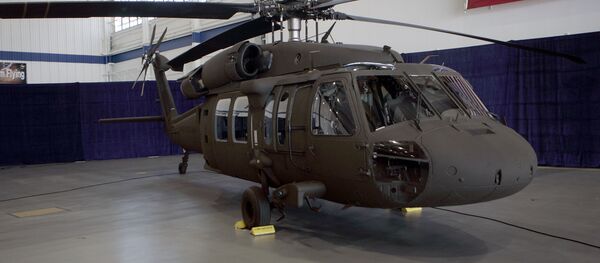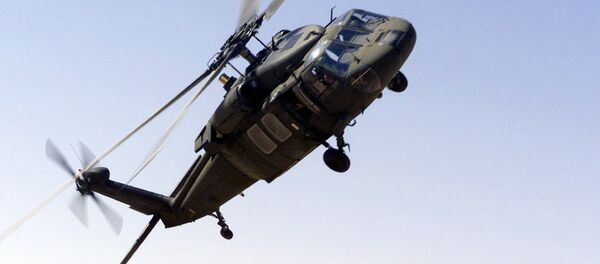Last year, aircraft manufacturer Sikorsky announced its intention to develop a brand new version of the UH-60A, also known as the Black Hawk helicopter. The goal: To make the aircraft fully functional without the need of a pilot.
Last week, the company took a major step toward that goal.
Conducting tests at Sikorsky’s Aircraft Development Flight Center, an autonomous Black Hawk successfully delivered an amphibious all-terrain vehicle.
"[The helicopter] came in, picked up [the AATV], flew five to seven kilometers in an air route, delivered it to a ground location and released it," said Paul Rogers, director of the Army’s tank Automotive Research Development and Engineering Center (TARDEC), according to Defense One.
The self-flying rotorcrafts come equipped with Sikorsky’s new hardware-and-software package known as Matrix, which improves the helicopter’s self-steering capabilities.
But the test also displayed Sikorsky’s improvements with autonomous ground vehicles. Once delivered, the AATV conducted its own tests, and managed to coordinate remotely with the Black Hawk.
"The unmanned ground vehicle moved through a ten-kilometer scenario where it faced different chemical, biological hazards and then fed that data back via satellite," Rogers said.
With 2,500 Black Hawks in the Pentagon’s fleet, upgrades to the Matrix system could drastically alter the way the military handles air operations.
"If you can retrofit them, now you can do autonomous logistics when the crew is resting," TARDEC roboticist Robert Sadowski told Defense One.
"It gives you the ability to have an enhanced operational tempo. It can be retrofitted across the older UH-60s. In fact, they’re trying to do that to show that it can be done."
Earlier this year, defense contracting giant Lockheed Martin announced plans to purchase Sikorsky for $9 billion. This stoked fears among the defense industry that Lockheed – the company behind the much-beleaguered F-35 – would become too entrenched in the Pentagon’s military contracts.
The US Justice Department approved the merger since Lockheed did not previously specialize in helicopters.
"Sikorsky has really advanced their technology quite a bit on the unmanned side with their own internal research and development," Sadowski said.





